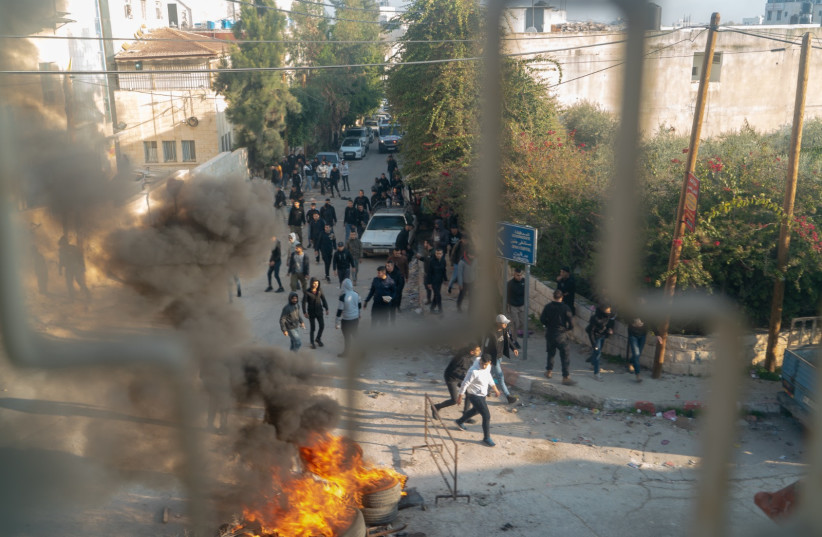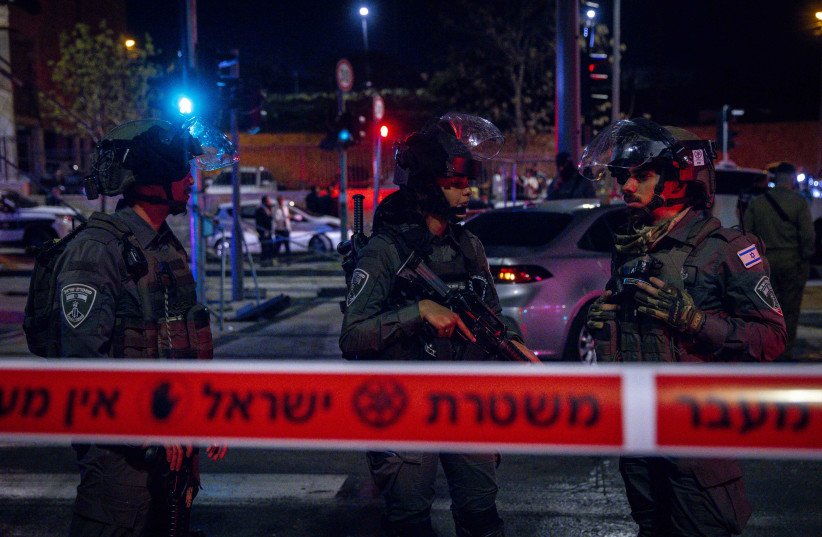The last weeks of January saw rising tensions between Israel and the Palestinians - with nine Palestinians killed in a raid in Jenin and seven Israeli civilians killed in a terror attack in a Jerusalem suburb. Officials, media and commentators described this as a “cycle” or “spiral” of violence, which carries the assumption that a conflict might break out.
How were these incidents framed? What narrative was developed? After each round of conflict, it can be framed in a number of ways. In general, Israel and its supporters are consistent: Israel is facing terror threats and it must defend itself. For most centrists, including most governments that have good relations with Israel, the overall sense is that Israel has a right to defend itself but is also under a spotlight for actions it carries in Palestinian territories.
For the critics, the narrative constantly changes because their view of Israel and of the Palestinians has shifted over the years.
What are the anti-Israel narratives?
In recent years, a campaign developed among prominent human rights groups to term Israel an apartheid state, a dramatically expansive definition of the word – taking Israel’s actions in the West Bank and applying it to Jerusalem, Gaza and the rest of sovereign Israel.
Another theme is to paint attacks on Israeli civilians as isolated, either by depicting the victims “settlers” or as part of Israel’s regime. This portrays Israelis as one collective, while simultaneously decrying Israel’s “collective punishment” of Palestinians.

The IDF raid on Jenin didn’t come in a vacuum. Israel, for a year now, has been fighting threats from Palestinian Islamic Jihad and its gunmen in Jenin. The clashes happen because the Palestinian Authority has no control over the city and does not crack down enough on illegal weapons.
Yet for the critics, Israeli security actions there are “collective punishment” and every Palestinian killed in Jenin is a victim of it. This completely disregards the difference between what are usually called “terrorists,” “militants,” or “armed groups” – and civilians. The way the discussion is framed is that Israel killed 30 Palestinians in January – without any specification as to who were civilians and who were not.
The Washington Post noted that 2022 was the “deadliest year for West Bank Palestinians in nearly two decades, Israeli forces killed more Palestinians in the West Bank in 2022 than in any year since the UN began systematically recording fatalities in 2005.”
One would think that when discussing a conflict, whether Russia’s invasion of Ukraine, the US in Afghanistan or the war on ISIS, organizations would differentiate between military targets and civilians.
Was 2022 the deadliest year for Palestinian civilians in the West Bank? Maybe, but it is difficult to discern if men armed with M-16s who are killed in battle are categorized as civilians. For some commentators, it doesn’t matter if someone is killed with an M-16 while firing at IDF troops or if they are a woman on her way to work in a law office, it’s all the same.
It is Israel’s presence that causes the violence, this narrative argues, even if Israel isn’t actually present in Jenin most of the time, Israel’s “occupation” and the “apartheid” create the situation that leads to deaths. Israel is completely at fault for these deaths; the victims might as well all be civilians. Israel’s precision raids targeting Palestinian Islamic Jihad terror cells are seen as “collective punishment” by some and as a “massacre” by others.
This led to a rising chorus of calls on social media for a new “intifada.” One commentator noted that Palestinians were on the verge of a new “chapter” that would go beyond Israel’s attempt to “manage” the conflict. This perception that a new “intifada” is always around the corner frames every major clash that has occurred in the last several years.

The framing of the clashes in Jenin as a “massacre” by an “apartheid regime” and is against international law are the building blocks for what comes next: Israel’s attempts to secure itself via pre-emptive armed raids involving special forces are transformed into a massacre of civilians under a regime as if Israel rules Jenin.
While Palestinian gunmen were depicted as civilians, Israel’s civilian victims in the attack on Neveh Ya’acov were portrayed by critics in different ways. One expert wrote that the attack on Israeli civilians was a “horrific criminal act conducted by an individual.”
Others took a tougher stance. One claimed that every killing is a result of Israel “maintaining a system of domination” and that Israel’s actions lead to attacks “in return.” This type of framing portrays the Palestinian terrorist killing Israelis as a “collective,” – not as an individual act, but as a war crime.
Israeli victims were described as “settlers living on stolen land” and part of a “brutal oppressive mechanism.” A post by an activist, which was censored by Twitter, said that every Israeli, “whether in a synagogue, checkpoint or settlement or shopping mall” is a “colonizer who came from foreign lands.” Every Israeli is serving in a “racist colonial military.”
The attack in Jerusalem was even castigated for being described as an attack near a synagogue, with critics complaining that this was a form of “disinformation” that “preys on emotions.” Another commentator described the civilians as “in a powerful state that inflicts unceasing violence on millions.”
One critic was unhappy to see pro-Israel voices note that the killings happened on Holocaust Memorial Day, arguing that “the Jews” need to do the “hard work of facing how the Jewish state abuses Jewish history to keep Jews terrified.”
The milieu of comments about the recent incidents portrays the attack as a “resistance” by “colonized” people. This brings to mind the era when Palestinian shooting attacks and bus bombings were termed “armed struggle.”
The consistent tone is that Israel deserves violence for maintaining a “brutal apartheid regime;” there is no discussion about “armed struggle” against security forces versus attacks on civilians; all Israelis are lumped into one collective.
For Israel, facing this is quite difficult. Every Israeli action to stop attacks is seen as collective punishment and every attack on Israelis is excused as “resistance” against “apartheid.” The Jenin raid and the attack on Jerusalem revealed how entwined this narrative has become for anti-Israel critics.